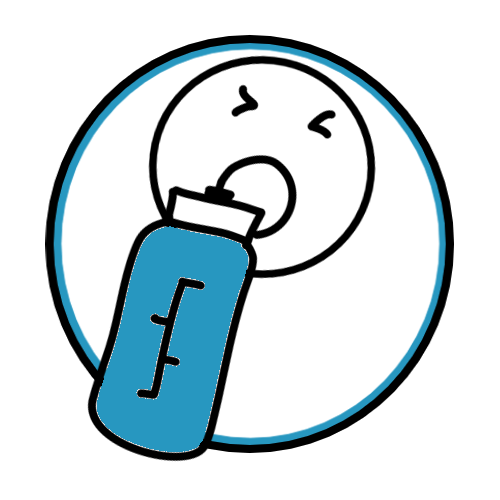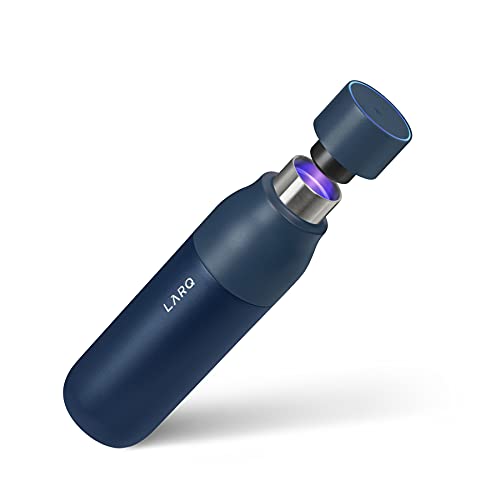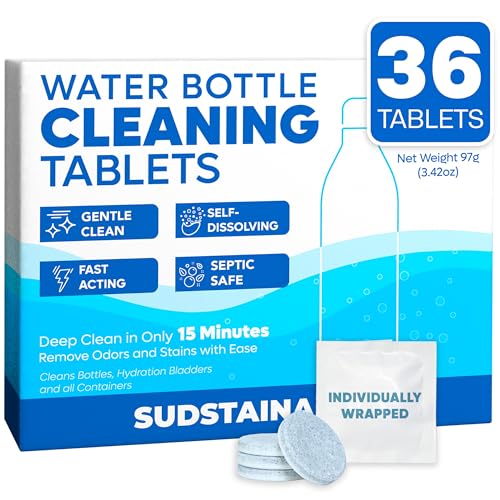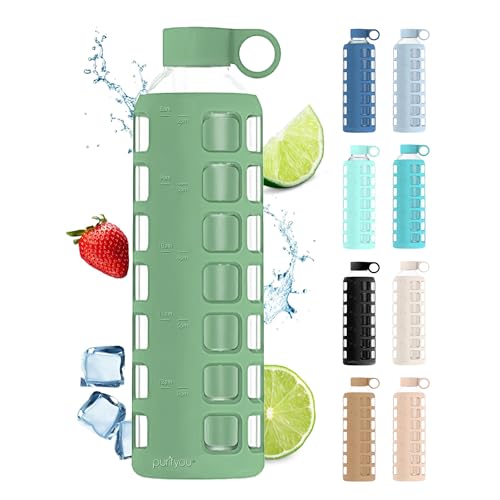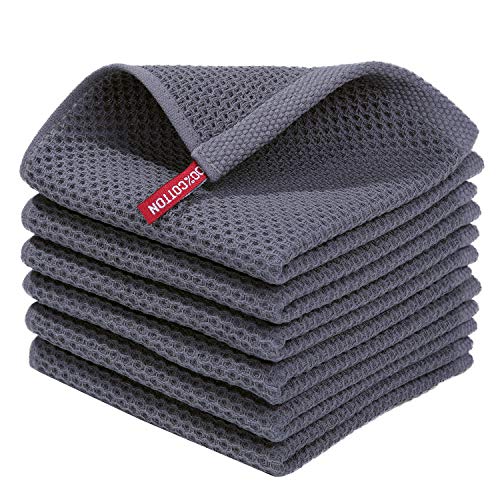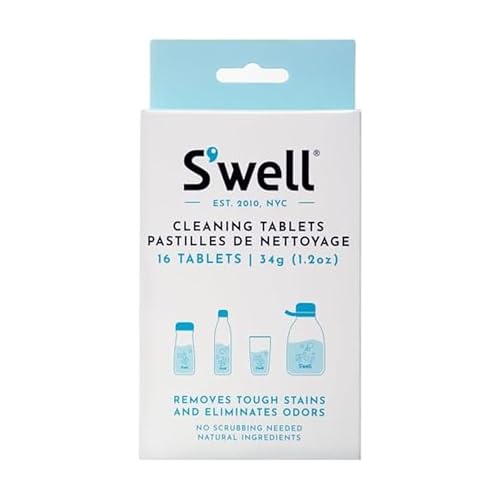Did you take a sniff and your water bottle smells like a wet dog or rotten eggs or something similarly disgusting, and want to know how to fix it? It’s definitely not pleasant when your hydration companion smells bad, but the good news is, you can stop a water bottle from smelling, moreover, you can prevent it.
This post contains affiliate links and I earn a commission from qualifying purchases at no cost to you. Thanks for your support!
First, let’s dive into the reasons:
Why Does My Water Bottle Smell Weird?
There are several possible answers to the question “why does my water bottle smell bad”.
It is possible that bacteria accumulate inside the water bottle. It can easily happen if the water bottle is not washed frequently or dried completely. Also, if you get water from a questionable source, it may be contained with bacteria or other organisms. These can cause a stinking odor too which may be difficult to remove. Scroll down to read more about that.
Another reason could be that you are not using the right cleaning method or cleaning product. For example, if you are only rinsing your water bottle with water or using a mild detergent, it may not be enough to remove all the odor-causing bacteria.
If the water bottle has been left damp or wet for a long time, mold or mildew may start to grow inside it. If you experience a musty or earthy smell when you sniff your bottle, you likely have this problem.
If there was anything else but water in the bottle – like juice, soda or a sports drink -, it may leave behind a residue that can cause a repulsive odor.
A chemical reaction can cause trouble too, if your water bottle is made from a material that is reactive to certain substances, such as metal or acidic liquids. If your water bottle smells like rotten eggs, it could be due to the presence of sulfur in the water or in your mouth. Sulfur compounds can react with the metal or plastic of your water bottle, and the sulfur-reducing bacteria produce hydrogen sulfide gas. This gas has a distinctive, disgusting smell. To avoid it, you can consider using filtered or purified water in your water bottle to reduce the presence of sulfur compounds.
Glass bottles are less likely to absorb and retain odors compared to plastic or silicone bottles. However, if they are not properly cleaned and thoroughly dried, bacteria can still grow and a glass water bottle can smell bad too.
Now that we know more about the reasons, let’s see a few tips on
How To Stop Water Bottle Smelling
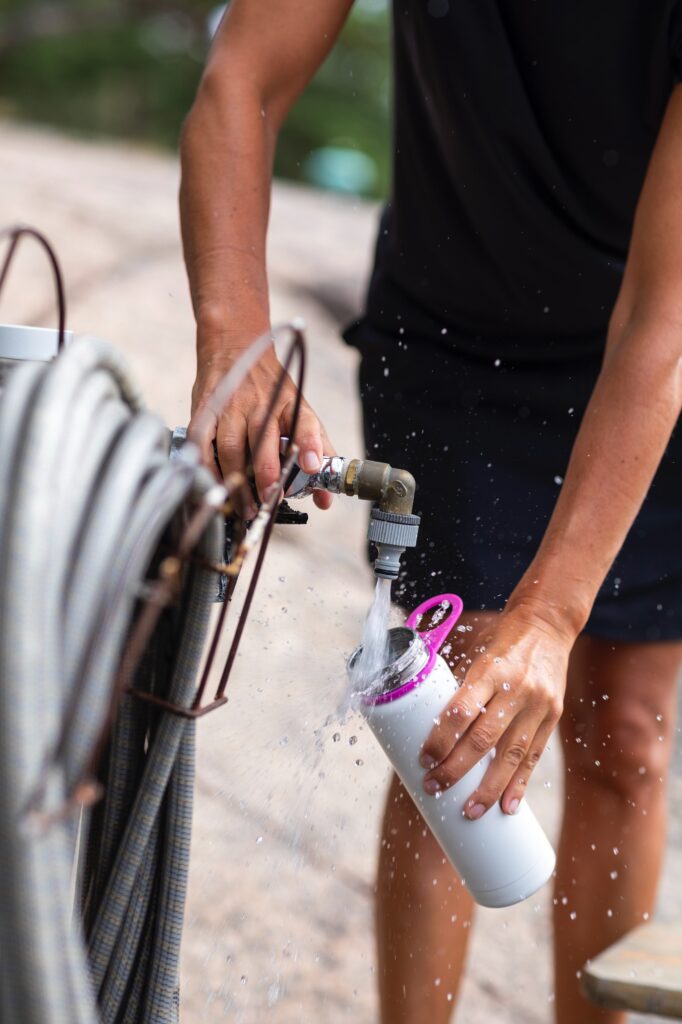
Photo by Bluewater Sweden on Unsplash
Hand wash the bottle regularly – and by regularly I mean after each use! It is best to do it with hot water and dish soap. A bottle brush can help to reach the difficult areas inside the bottle better than a sponge or cloth. This will help remove any bacteria or mold that may be growing inside the bottle.
Rinse the bottle with vinegar or neutralize odors with baking soda, from time to time. They are natural disinfectants and can help kill bacteria and remove odors. Mix equal parts vinegar and water, pour it into the bottle, and let it sit for 10-15 minutes before rinsing thoroughly with hot water. Or mix a tablespoon of baking soda with warm water and pour it into the bottle. Let it sit for a few hours before rinsing thoroughly with hot water.
Don’t put strong-smelling liquids in your water bottle. Liquids that have a strong odor, such as coffee or juice, can leave a lingering smell in the bottle. If you use it only for water, it’s still recommended to wash the bottle at least once a day, or every few uses.
Dry and store your water bottle properly. You can leave the bottle open to air dry, or use a clean towel to dry it thoroughly. They need a dry, cool place when not in use to prevent bacteria from growing.
And what happens if the
Water Bottle Smells Bad After Washing It
Well, it can happen, unfortunately, if the washing or drying was not adequate, or any other of the listed reasons for “why does a water bottle smell bad” is present. Try washing the water bottle with a mixture of hot water and vinegar (see above) and make sure it dries properly, or use specialized cleaning tablets designed for water bottles.
My personal tip: I heard from a mountain biker once that sometimes he uses denture cleanser tablets to clean his water bottle. I regularly use retainer cleaning tablets after my braces, so I gave it a try, and all I can say is: it does the trick.
So, in conclusion, cleaning your water bottle after each use but at least once a day is an important part of maintaining good hygiene and preventing the development of unpleasant odors and harmful bacteria.
Cheers!
Featured image credit:
Photo by Bluewater Sweden on Unsplash
Shop Related Products:
Related posts:
Is There A Water Bottle That Is Easy To Clean?
How Often Should Water Bottles Be Cleaned
Why Does Water Taste Funny To Me
